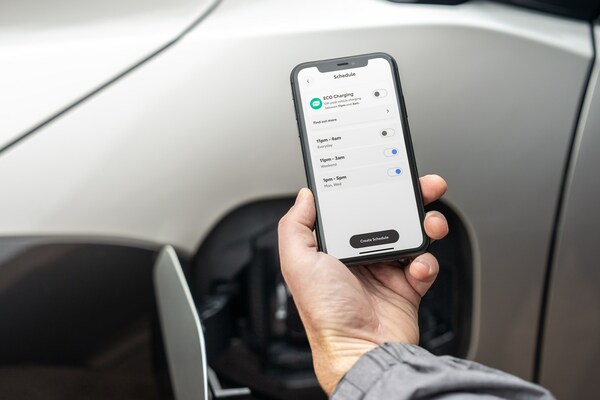Toyota and Lexus Offer Lower Emissions EV Charging Program Using WattTime’s Technology
Building upon its commitment to creating a sustainable and resilient future, Toyota Motor North America (Toyota) has partnered with WattTime, a tech non-profit dedicated to reducing the environmental impact of energy. This collaboration aims to deliver valuable health and environmental impact information to Toyota and Lexus customers with eligible vehicles. With this data, vehicle owners can make more informed decisions about when to charge their cars in a way that reduces power plant emissions. As such, not only do they contribute to lessening the environmental damage and health risks associated with these emissions, but they also take a proactive step towards mitigating the effects of climate change.

Leveraging the power of the Remote Connect feature within the Toyota and Lexus apps, Toyota and Lexus Battery Electric Vehicles (BEV) and Plug-in Hybrid Electric Vehicles (PHEV) customers will now have the ability to manage their home charging experience. With the introduction of the ECO Charging feature, users can select the most efficient times to charge their vehicles. This not only optimizes energy usage but also contributes to a broader sustainable impact by aligning charging times with periods of lower demand, thus reducing the strain on the energy grid and promoting cleaner, more efficient energy production.
“With the integration of WattTime data in the Toyota and Lexus apps, we are providing customers an easy and accessible way to identify times when they can charge their vehicle that help reduce environmental impact,” said Steve Basra, group vice president, Connected Technologies, Toyota Motor North America. “The Toyota and Lexus apps offer a seamless and simple solution for our customers, and we’re confident this will enhance their electrified vehicle ownership experience.”
WattTime, founded in 2014, is a nonprofit organization committed to mitigating the carbon footprint of energy consumption. By providing valuable data to diverse users, ranging from power utilities to individual consumers, WattTime equips them with the knowledge to ascertain the most eco-friendly periods to draw electricity from the grid. In an unprecedented move, Toyota, under its partnership agreement with WattTime, will be the exclusive automotive manufacturer to furnish customers with WattTime’s data that pertains to human health.
Armed with this critical information, Toyota’s customers can utilize the recommended charging schedules that will not only optimize their energy consumption but also potentially minimize the health impact of the electricity extracted from their local utility. This intelligent integration of technology and environmental stewardship showcases the immense possibilities of sustainable practices in our everyday lives.
“Our electrified vehicle customers select our vehicles not only to enjoy a best-in-class customer experience, but also to make a positive impact on our environment and society,” said James George, general manager, Toyota EV Charging Solutions. “We will continue to provide solutions both now and in the future in support of Toyota’s goal of creating a carbon neutral society.”
“With the help of WattTime data, Toyota and Lexus have pioneered a feature in their phone apps to help customers identify when they can charge their electric vehicle with electricity coming from some of the cleanest power plant options available,” said Gavin McCormick, executive director of WattTime. “It’s a powerful step to protect the planet – and everyone on it.”
How does it work?
Owners of compatible Toyota or Lexus BEVs and PHEVs can download the respective Toyota or Lexus app and register their vehicle. Once registered, they have the option to enable the Remote Connect service, available within the app. The Toyota and Lexus apps then integrate the energy forecast data provided by WattTime with the customer’s personal mobility and charging requirements to suggest a tailored charging schedule via the ECO Charging feature. This proposed schedule can be conveniently accessed through the user’s established account on their respective app. Customers are empowered to utilize this data to align their charging times with those that yield the best potential for reducing both their carbon footprint and impact on health.
The ECO Charging feature is available now on the Toyota and Lexus apps, both of which are available for download for iPhone® or Android™ smartphones.
Last year Toyota launched the all-new BEV crossover, the bZ4X. Toyota also offers PHEV vehicle options with the Prius Prime and RAV4 Prime. Lexus’ all-new RZ 450e BEV will go on sale early this year. In addition, Lexus offers PHEV options in the NX 450h+ and the forthcoming RX 450h+.

